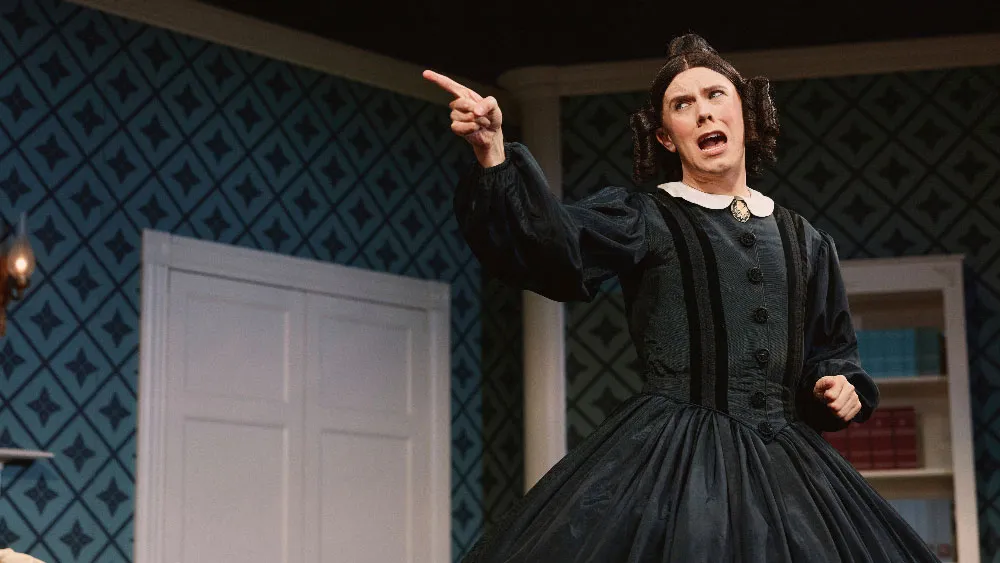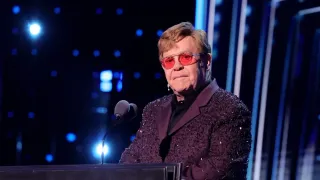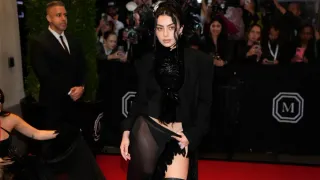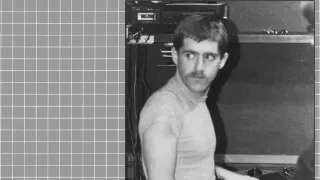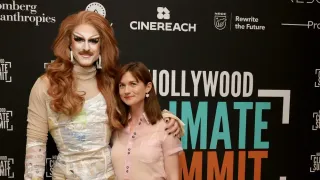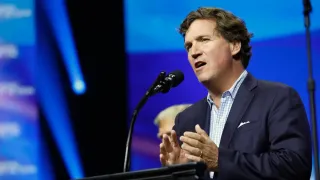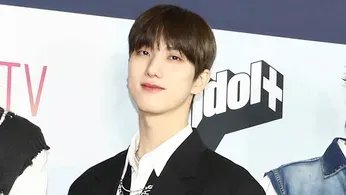
Jun 30
K-pop Star Bain: 'I Feel More Confident' Since Coming Out
Kilian Melloy READ TIME: 4 MIN.
Bain, the K-pop star who caused a sensation when he came out on stage in April, opened up about the anxieties around being closeted, his fears about coming out, and how glad he is to be authentic.
The singer was doing a show in Los Angeles on April 22 when he suddenly announced that he was "proud to be part of the LGBTQ community" and prefaced a cover of Lady Gaga's anthem "Born This Way" by saying, "To anyone out there who's part of the LGBT community, or still figuring it out – this is for you guys."
Later on, posting a video clip of the moment to social media, he captioned the clip with, "I want to share something real with you. I'm proud to be a part of the LGBTQ+ community – as a gay person."
Looking back on that moment, he revealed how hard it was to arrive at a point of liberation. The BBC reported that Bain – the stage name for Song Byeonghee – knew since he was 12 that he was gay, but he felt he "had no choice" except to "pretend and keep going."
But the weight of keeping his true self secret wore at him until he finally confided in his mother. Though she was upset at his disclosure, she reassured him of her love.
As he contemplated coming out publicly, he said, he encountered the same advice that queer entertainers have been given for decades: to stay closeted for the good of his career.
"There were some people in the industry who... warned me against [coming out], saying it would be a risk," Bain told the media. "And of course I thought about the risk – that we might lose fans."
"But then I thought, society is changing," the 24-year-old singer added. "I might gain more than I might lose."
If South Korea is changing, K-pop itself is part of the driving force behind it. The BBC pointed out that "fans from everywhere" love K-pop, and those fans "may well reshape the K-pop industry."
Meanwhile, South Korea remains conservative, if not repressive, where queer people are concerned. "The government and the church champion conventional family values, encouraging young people to marry and have children so they can boost birth rates, currently the lowest in the world," the BBC noted.
Still, Bain's hope to "gain more than [he] might lose" seems to be exactly how things are going for him. He has love and respect from his fans and his bandmates, who have been supportive. He's also gained a sense of empowerment in who he is.
"I feel like I've changed a lot since coming out," Bain reflected. "I feel more confident. When I meet someone new, I show who I am immediately."
He also said he feels "sad that my identity is such a big deal now." Rather than being known as a gay singer, he told the media, he would prefer for his sexuality to be part of the background rather than the headline.
His fans in the queer community see things differently.
"When someone like an idol comes out, it gives people like me a sense that we are not alone," said one fan – who, the BBC said, was 26 and a trans woman, but who did not want to be identified by name.
"It brings comfort," the woman went on to say, "makes me think, 'Maybe I'm ok the way I am.'"
Bain understands where they are coming from, and that he means so much to them is something he takes seriously.
"I've spent so long pretending," he told the BBC, "I realized that because I came out, others felt safe to do so, too." The moment he embraced authenticity, queer fans approached him with their stories – and their gratitude.
"They thanked me and I thought to myself 'I should have done this sooner,'" Bain related to the BBC.
Still, the headwinds are strong against queer K-pop artists who might want to emerge from the closet. "It's not just a social issue – it's a market issue," a pop culture writer named Min Yong-Jun told the BBC. "Male idols usually have a much larger female fanbase... [and] if you find out your favorite male idol is gay, that can shatter the illusion that you could one day be the object of his affection."
On top of that, South Korean culture is generally more reticent to see the private lives of prominent people aired in public.
"This is a world where even straight couples don't talk about their private lives, says critic Lim Hee-yun," the BBC explained.
In any case, while he's feeling freer, Bain doesn't want his newly acknowledged status as part of the LGBTQ+ community to become another form of restriction. "Over time, he hopes, people will stop saying 'Oh, he's gay,' but rather, 'Oh, that's just who he is,'" the BBC relayed.
Kilian Melloy serves as EDGE Media Network's Associate Arts Editor and Staff Contributor. His professional memberships include the National Lesbian & Gay Journalists Association, the Boston Online Film Critics Association, The Gay and Lesbian Entertainment Critics Association, and the Boston Theater Critics Association's Elliot Norton Awards Committee.
